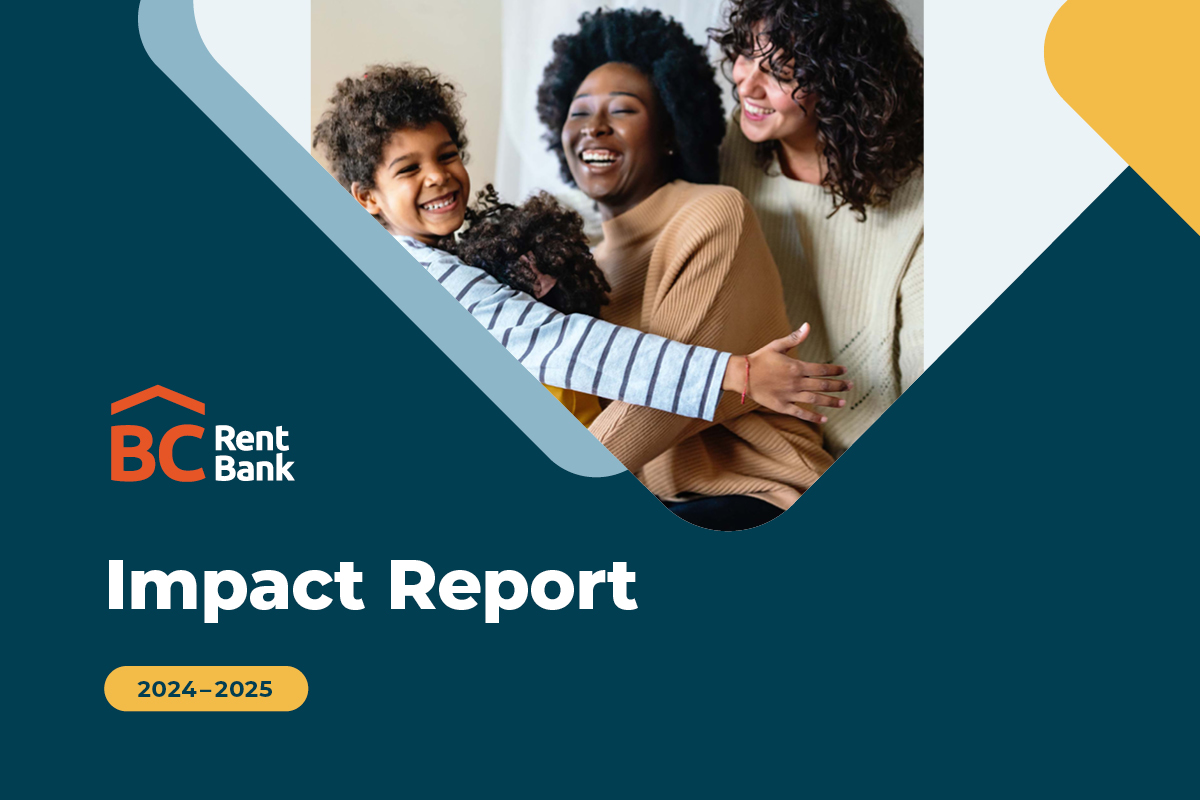Impact Story – Paula
April 13, 2021

Huge hearts, helping hands
Paula’s positivity and optimism is contagious. She is just finishing up a four-month gig at a big box retailer, sterilizing and cleaning shopping carts and baskets as part of COVID-19 safety procedures.
Because that job took Paula from location to location, she has worked at sites where there have been COVID-19 exposures—and it has become too risky to her health to continue. “Because I’ve had cancer, my immune system isn’t what it was,” says the 51-year-old mother of four, who grew up on the North Shore.
Paula was diagnosed with late stage four breast cancer at the age of 45. She underwent an aggressive treatment regime, including surgery, and continues to be in remission.
“There’s no guarantee in life, I know that,” she says into the phone from her one-bedroom apartment in Abbotsford where she took up residence late last year. The move was a big one: it took Paula from living in a 24-foot trailer in the woods to being housed with, what she calls, all the extras.
“I’m all connected now: I have Wi-Fi, hydro and heat. I love my new place! It’s so beautiful, it’s so quiet and peaceful—it’s awesome.”

To get there, Paula needed a $450 rent bank loan, which was administered by the Fraser Valley Rent Bank, a program of the Mennonite Central Committee, a non-profit organization.
That was the second time that Paula leaned on a short-term, interest-free loan from a rent bank. The first time was exactly two years ago (in February 2019) when she needed help with paying rent for her trailer pad rental. She’d broken her leg and was unable to work; her anticipated income dropped. Fortunately, Paula knew about the rent bank in the Fraser Valley because she had been volunteering at local community meals at the MCC facilities.
Her first loan – for about $400 and which is now fully repaid – was a cheque that went directly to the landlord of the trailer pad. Jane Njogu, a homelessness prevention outreach program coordinator at MCC, gave that cheque to Paula.
Housing stability by preventing homelessness is what rent banks are all about. Jane says, “I describe it as a bridge that goes both ways: it prevents people from falling down the cliff [of eviction] and it gives a hand up to people who need housing.”
The conversation with Jane then turns to some of the ways that people are underhoused. Sometimes people are on the street and in the trenches, seniors who are living in their vehicles (there are a lot, she says), and couch surfing where people are paying with cash or in-kind.
Meeting people in the midst of tough times has its toll. “It’s not easy. I pray a lot; the pain that they entrust to us…,” Jane says as her voice fades, but she quickly turns her attention to the joy of meeting new people, as well as seeing familiar faces, every week through communal meals offered by MCC.
“When people go out and look for food, because so much of their budgets are going to housing, that is when we meet them. They come out for meals but maybe they’re behind on rent or they needed to go to the dentist or fix their glasses or their car broke down. We get to know them through these meals,”
Jane Njogu – Mennonite Central Committee (MCC)
By understanding where people are at the moment, the rent bank is able to provide additional wraparound resources that might be needed whether that is housing, clothing, furniture or even employment as Paula can attest to—she was connected to her job at the big box retailer through Jane and the rent bank.
At the end of every day, it is certainly worth it. “MCC is an amazing organization—and so is Jane. You just feel warm and comfortable with her,” Paula says. And for Jane: “We have a family and community that comes out for community meals. We support one another; there is a mutual transformation.”

![Vc Peers 06[1]](https://bcrentbank.ca/wp-content/uploads/2025/06/VC-PEERS-061-2400x1600.jpg)
